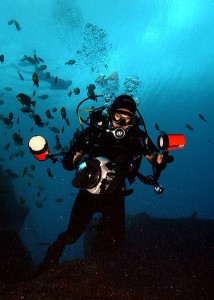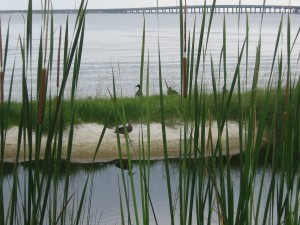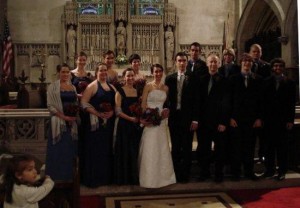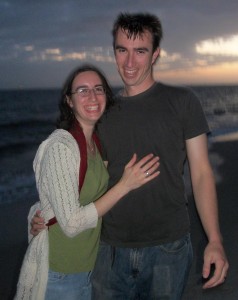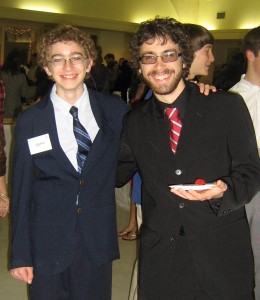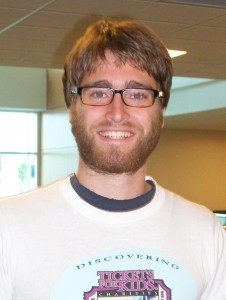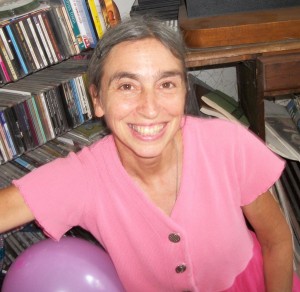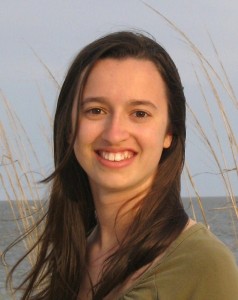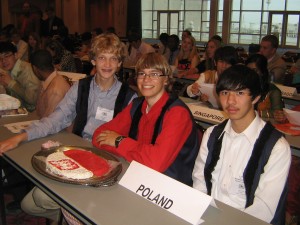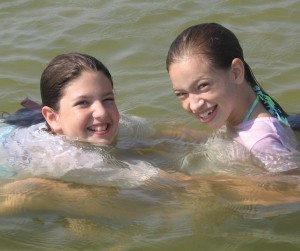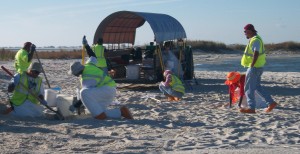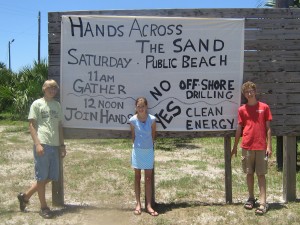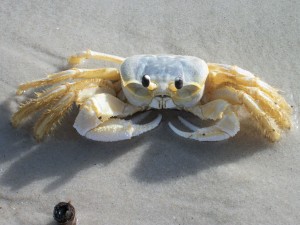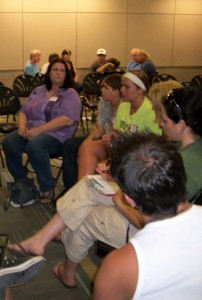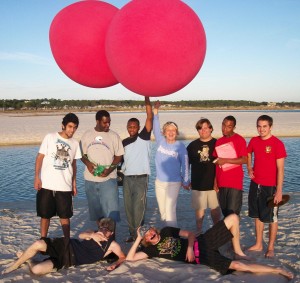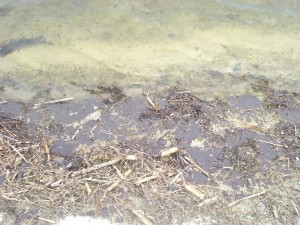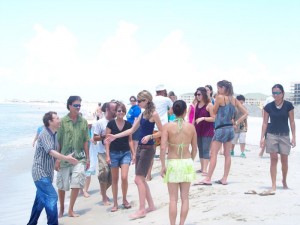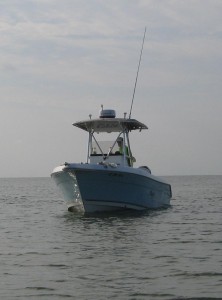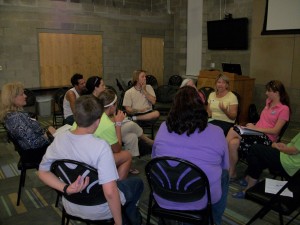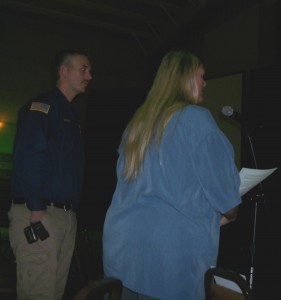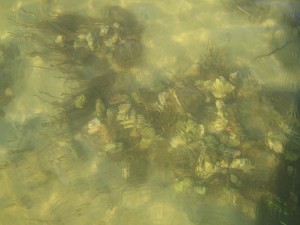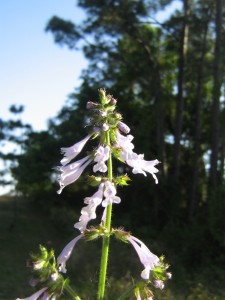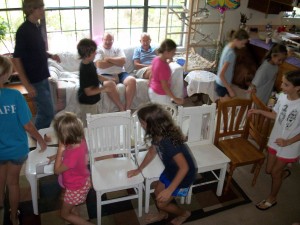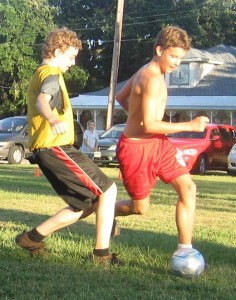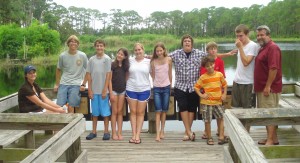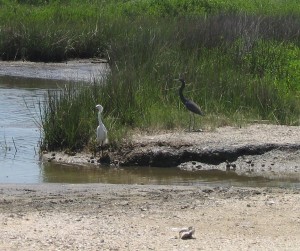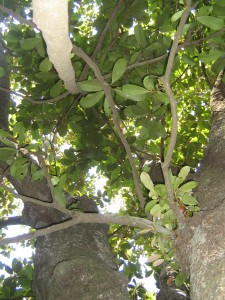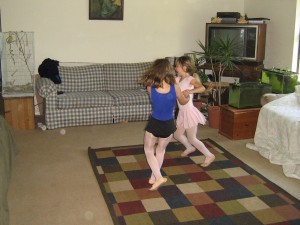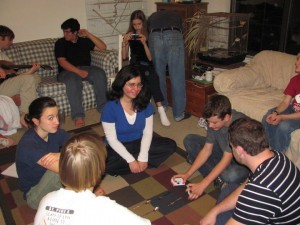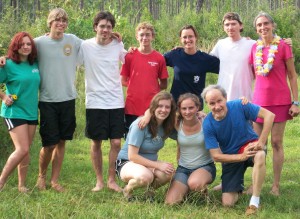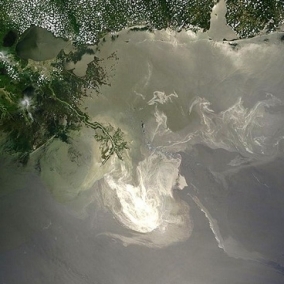It was 1971 in autumn. I was going to McGill high school. That’s when it happened, the breakthrough that changed my life forever.
Nine years earlier, my family had moved from Texas to Mobile on Providence Street where both my parents had grown up. We lived a garage apartment with a converted downstairs living area. I had a younger sister, Irene, and two younger brothers, Bill and Joe. Cathy and Tom, our youngest sister and brother, were born a few years later at Providence Hospital just down the street. Three of my grandparents, Grandmommy, Papa, and DarDar; an aunt, Mary Acker; and two great great aunts, Aunt WeWe and Aunt Mame also lived on Providence Street.
Our neighborhood was filled with adventures on bikes, on roofs, and in trees. There was fun at Lyons Park, the CYO Hall, and the Dauphin Way Methodist Church. The neighbors, including the nuns, priests, and religious brothers, tried to keep an eye on us. My Aunt Mame had a large, gorgeous sweet heart rose bush. Each day she would pick roses, bring them to St. Mary’s church, and pray.
Though I rarely talked about it, as a young child, I was inspired by stories of saints, like Francis of Assisi who saw all of nature as his brothers and sisters, and Bible stories, like the one of Jesus’ compassion for the woman caught in adultery. Some of the words and actions at church also inspired me, like the words the people said before receiving Communion: “Lord, I am not worthy to receive you, but only say the word and I shall be healed.” Also after my Aunt Mame died, I would pray for her when there was a moment of silence to pray for all who had died.
Across the street from my house was St. Mary’s where I went to grade school. In my first years there, I learned a great deal. But in fourth grade, I stopped reading books and stopped applying myself well at school, and about two years later I was becoming much less consistent about going to church.
Still, there were important developments in my life prior to high school. I received the sacrament of Confirmation in a spirit of seeking courage for myself. Then, during the summer after seventh grade, I firmly decided to be true to myself regardless of what others might think. This determination enabled me to stop smoking and stop cussing. Many little things happened too, like my parents bringing home a cardboard box of Aunt Mame’s throw away items. They told my brothers, sisters, and I that we could pick out anything from the box. I picked out one small thing, a key, and placed it in my top drawer where I kept special things.
Down the street from my house were the boys’ and girls’ Catholic high schools, McGill Institute and Toolen High. These schools drew students from all over the Mobile Bay area. On my first day at McGill, I was anxious – so many new faces and such high expectations. I had made a low entrance test score, but, because I had scored high on an IQ test years earlier at St. Mary’s, I was placed in the lower level of McGill’s top academic tract. My family was poor at the time, and during each of my four years at McGill, I was told that an anonymous person had paid for my tuition because I was a “poor smart student.” Yet I had become a slow reader and was hardly able to keep up with class work. So I cut corners in my classes, like for book reports, I’d make up the book’s title, author, and story. At this time too, my parents had serious problems, and our relationship had became strained. My lunch was normally a 15 cent ice cream bar – that’s what I could afford. But new friends at McGill helped me with many subjects, and I could sometimes return the favor by helping them with math. Somehow, in the final quarter of the year, I made honor roll. I was completely surprised, and when I told my new friends they just thought I was kidding around.
As a sophomore, without any warning, I was moved to the upper level of McGill’s top tract. This was a huge change for me. The students in my new classes were incredibly skilled at seemingly all subjects. Additionally, my home situation had gotten worse. In my new classes, I felt a heavy loss at being separated from so many grade school friends and from the friends I had made in the previous year. In my new classes, I didn’t see myself fitting in – I felt like I had nothing to offer – and the course expectations seemed not just challenging but unattainable.
Walking to McGill, on that autumn morning in 1971, I was just coming to grips with the reality that I was flunking my classes. I had three major papers due on the following day, and I had not written the first word on any of them. I went to my locker and opened it. My hopes rose when I saw some library books that I had checked out earlier for the papers. I had forgotten all about them. Feeling relieved, I decided to just relax a bit before coming back to my locker.
I had always quietly pitied the students who had to get their locks cut off. This was a humiliating experience often accompanied by a lot of humor at the expense of the unfortunate student. My pride would have prevented me from getting my lock cut off in front of so many students, but I knew I had to do it right away, if I had any chance of writing those papers. Students, who had their lock cut off, generally carried all their books throughout the day to keep their books from being stolen. But I was so discouraged that I just left the books in my locker without a lock. In PE class, though, I had second thoughts and asked a student if he had a spare lock that I could borrow. Surprisingly, he took out a lock from his PE bag, and he warned me saying, “This is the only key I have to this lock so don’t lose it.” Again my hopes rose. I thanked him and assured him that there was no way that I would lose his key.
After PE, I went to my locker, saw that all the books were still there, and secured the locker with the lock.
Later that afternoon, I went to get some books from my locker and made a grim discovery. Somehow, again, despite my firm promise, I had lost the key.
I could not bear the thought of getting a second lock cut off during the same day. I felt like I had no friends, and my chances of new friendships seemed like they had just gone down the drain. Classes were still going on, but I was so distraught that I just walked out and went home.
At home, with everything I needed still locked away, I did nothing on my papers.
The next morning, I told my parents that I was sick and would not be going to school. When everyone had left the house, I began to ask myself questions. Why should I work so hard to learn and live well? Why should I put up with all the meaninglessness around me? Why not just do nothing? No one loves me! Why? Why life? What is the purpose? Where is the meaning?
I searched for answers throughout the day and into the late night. I gave it my best, but around 11 that night, I still had no answers. Then seemingly without deliberation, I did something that I had not done in a long time. From the depths of who I was, I looked up and I prayed, “God, help me!” With those simple words, I lay down and fell asleep.
I know nothing of what happened while I slept, but when I awoke, I was bursting with energy! I felt like I could conquer the world! Caught up in whatever had happened while I was asleep, I hardly knew what I was doing. After getting dressed, I opened my top drawer and got Aunt Mame’s key.
Then, I was off, walking to school. It was too early for the school doors to be open, but this morning the doors were open. Still hardly knowing what I was doing, I walked up the empty stairway and down the empty hall to my locker. Without thinking, I placed my aunt’s key into the lock and turned it.
Instantly, the lock snapped open, and with shocking clarity and with all my heart, I understood what had happened, and like the lock, I had opened too.
In the same moment, immeasurable oceans of energy and light began flowing all around me, pouring onto me, touching me, and flooding through me. The oceans were wild, infinite, endlessly flowing, and incredibly alive. There was a rhythmic beating too, like a heart, beyond words and beyond my hearing and yet so clear – “I love you, I love you, I love you, even if no one else loves you, I love you!” Beating over and over again! Endless! “I love you, I love you, I love you, even if no one else loves you, I love you!”
In some ways, it seemed to last forever … deeply touching … embracing … powerful … stimulating … challenging … all-loving …
But, with all this still reverberating within me, I gathered the library books, started writing, and finished the papers before class time. My teachers accepted the day late papers without question.
The following week, my friend received his lock and the miraculous key. I asked if he noticed anything different about the key. He was puzzled by the question and said no.
From that breakthrough moment, day by day and with ups and downs, I became friends with my new classmates, started reading books again, started going regularly to church again, and became a good student.
Looking back over those years, I see how my friends from St. Mary’s, McGill, and Toolen saved my life on many occasions and in many ways. My family, teachers, and several adult mentors helped save my life as well.
Looking back and looking forward, with so many things to do and so many ways to grow, I see God’s Infinite Love for us – always seeking to enliven us – to breakthrough to us with incredible energy – to be the key that unlocks us so that we too will wildly embrace and love one another! Endlessly beating …
I love you,
I love you,
I love you,
even if no one else loves you,
I love you!
…
…
…
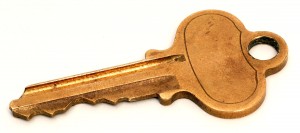 |

